Sports
Club, national teammates join family in mourning Jota at funeral
Liverpool and Portugal national team players joined grieving family and friends Saturday at the funeral of teammate Diogo Jota and his brother, who died in a car crash in Spain two days earlier.
The Reds’ captain Virgil Van Dijk arrived carrying a red floral arrangement in the shape of a football shirt with Jota’s No. 20 in white.
Liverpool teammate Andrew Robertson carried a similar arrangement with the No. 30, the number worn by Jota’s brother, Andre Silva, who played for Portuguese club Penafiel. Coach Arne Slot was part of the Liverpool contingent.
Portugal international Ruben Neves served as a pallbearer for Jota a day after playing at the Club World Cup in the United States. He and Jota were teammates at Wolverhampton earlier in their careers.
Neves and Joao Cancelo attended the funeral after playing in Orlando on Friday, when their Al Hilal were eliminated by Fluminense. Both players had wept when a minute of silence was held before the quarterfinal match.
The service was held at Igreja Matriz church in the Portuguese town of Gondomar, where Jota had a home.
Church bells pealed at 10 a.m. local time as the funeral started. Pallbearers carried the caskets of both brothers from a chapel next door and into the church. Relatives and hundreds of friends and acquaintances, including players of the local Gondomar FC, where Jota started playing at age 9, followed.
Portugal’s national team coach Roberto Martinez and several other top Portuguese players also attended, including Manchester City duo Bernardo Silva and Ruben Dias and Manchester United’s Bruno Fernandes.
“These are really, really sad days, as you can imagine,” Martinez said. “But today we showed we are a large, close family. … Their spirit will be with us forever.”
The bishop of Porto, Manuel Linda, led the funeral mass. The church was filled to capacity and a couple of dozen people followed the service via loudspeaker from outside. Afterwards, the coffins were carried to the cemetery next to the church.
Jota, 28, and the 25-year-old Silva were found dead near Zamora in northwestern Spain early Thursday after the Lamborghini they were driving crashed on an isolated stretch of highway just after midnight and burst into flames.
The brothers were reportedly heading to catch a boat from northern Spain to go to England, where Jota was to rejoin Liverpool after a summer break.
Spanish police are investigating the cause of the crash, which did not involve another vehicle, they said. They said they believe it could have been caused by a blown tire.
Their bodies were repatriated to Portugal after being identified by the family. A wake was held for them on Friday.
Jota’s death occurred two weeks after he married long-time partner Rute Cardoso while on vacation from a long season where he helped Liverpool win the Premier League. The couple had three children, the youngest born last year.
Their loss led to an outpouring of condolences from the football world and Portuguese officials.
Sports
PSG set up Mbappe reunion in Club World Cup semi with Real
Down to nine men, Paris Saint-Germain clinched a 2-0 win over Bayern Munich on Saturday in Atlanta, setting up a Club World Cup semifinal showdown with former star Kylian Mbappe and Real Madrid.
Los Blancos squeezed out Borussia Dortmund 3-2 in New Jersey in the day’s other quarterfinal clash, with Mbappe on the scoresheet for the first time at the tournament.
Luis Enrique’s PSG needed to dig deep in front of 67,000 fans at the Mercedes-Benz Stadium after late red cards for Willian Pacho and Lucas Hernandez.
The French side won the UEFA Champions League for the first time in their history in May, despite their key player Mbappe departing for Real last year.
Young forward Desire Doue, who shone on PSG’s road to European glory, and Ballon d’Or candidate Ousmane Dembele got the goals in the second half of an enthralling clash against Vincent Kompany’s Bayern, who had two strikes ruled out for offside.
The German giants also lost playmaker Jamal Musiala to a horror ankle injury just before halftime, which Kompany said made his “blood boil” because of how unfortunate it is for the 22-year-old.
“After the first red card, it became complicated, then with two players less it was a bit of a lottery,” said a relieved Luis Enrique.
PSG goalkeeper Gianluigi Donnarumma and his Bayern counterpart Manuel Neuer both made several excellent saves in a pulsating battle at the air-conditioned, covered venue, which allowed both sides’ high-pressing, attacking approaches to shine.
Players and spectators at both matches observed a minute of silence in honour of Liverpool forward Diogo Jota and his brother Andre Silva, who tragically died in a car crash Thursday.
PSG’s clash with Bayern was FIFA’s expanded tournament’s biggest heavyweight clash thus far and the game delivered, even if fans had to wait until the 78th minute for the opener.
After Harry Kane gave the ball away, PSG surged forward and 20-year-old Doue fashioned some space on the edge of the box before flashing a low strike home at the near post.
Bayern were given hope as they hunted for an equaliser when PSG defender Pacho was sent off for a high tackle on Leon Goretzka after 83 minutes.
Kane had a goal disallowed for offside, like Bayern’s Dayot Upamecano in the first half, and after Hernandez was dismissed for an elbow, Dembele tucked home the second in stoppage time, paying tribute to Jota by copying his video-gaming celebration.
“In the first half, we showed them who we are and they had problems with us,” said Bayern substitute Thomas Mueller, who played his last game for the club.
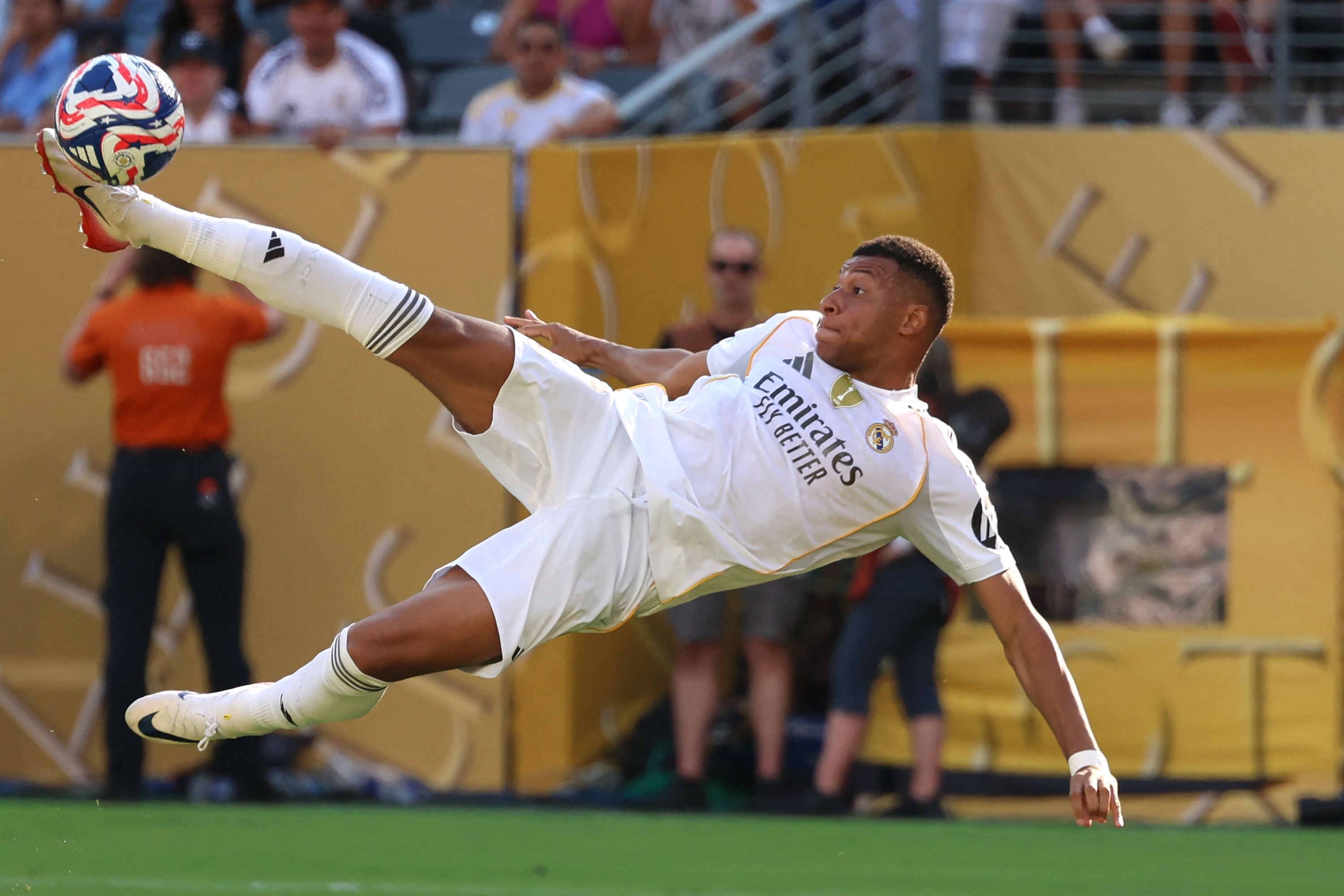
Mbappe strikes
Real Madrid cruised for the most part against Dortmund before a flurry of goals at the end left them in danger of losing their lead.
Xabi Alonso, unbeaten at the helm, shifted back to a four-man defence against Niko Kovac’s side, shorn of suspended Jobe Bellingham, who would have loved to face his older brother, Madrid’s Jude.
The coach decided to leave Mbappe, who missed the three group games after a stomach bug, on the bench and persist with Gonzalo Garcia up front.
The 21-year-old striker paid back Alonso for his confidence by grabbing his fourth goal of the tournament after 10 minutes with a close-range finish from Arda Güler’s cross.
“He’s doing great work for the team … he’s in the right position in the box, he’s a proper number nine,” said Alonso.
In the 20th minute, Fran Garcia doubled Los Blancos’ lead, rushing into the box to polish off Trent Alexander-Arnold’s dangerous ball across the face of goal.
Madrid were cruising to victory until Max Beier drilled home in stoppage time.
Real responded, with substitute Mbappe netting his 44th goal of the season with an acrobatic finish from another Guler cross.
He paid tribute to the late Jota by making the number 20 with his hands, the Portuguese striker’s shirt number at Liverpool.
Madrid were not home and dry. Dean Huijsen was sent off for tugging back Serhou Guirassy as he ran through and the Guinea international netted from the spot, but Dortmund had no time to equalize.
“Everything was under control with the result, not conceding much, but the last 10 minutes were kind of crazy,” said Alonso.
“We lost our shape and our intensity, and luckily nothing went wrong.”
Sports
Djokovic form proves Wimbledon upsets due to inexperience on grass
Despite winning 100 matches and seven Grand Slam titles on Wimbledon’s grass, Novak Djokovic didn’t grow up mastering the surface. Indeed, he never competed or even practiced on it at all until 2005, when he entered the qualifying event held at the nearby Roehampton facility and won three matches there to earn the right to make his debut at the All England Club at age 18.
“That was actually the first year I stepped out on the grass,” said Djokovic, who will play 11th-seeded Alex de Minaur on Monday for a quarterfinal berth at the Grand Slam tournament. “I must say that it felt very natural for me to adapt to it, even though I grew up on clay.”
That’s a common refrain among today’s pros, and the lack of familiarity with, and comfort on, grass could be one of the reasons for all of the upsets in the early going at Wimbledon. The eight total Top-10 seeds – four women, four men – who lost in the first round were the most at any major since they began seeding 32 in brackets in 2001.
“Grass,” 2022 champion Elena Rybakina said after her third-round exit Saturday, “is very unpredictable.”
With her departure and defending champ Barbora Krejcikova’s loss to Emma Navarro a few hours later, there is guaranteed to be yet another first-time women’s title winner this year at the All England Club. Whoever takes home the trophy on July 12 will be the ninth woman to do so in the event’s past nine editions.
Plenty of top players learned to play tennis on hard courts, especially in North America, or clay courts, especially in Europe and Latin America. Grass? Not so much, except for those from England or Australia. It’s an acquired taste and skill, and it doesn’t help anyone that the portion of the season spent on the turf is so abbreviated.
“Usually when I was on grass,” joked Eva Lys, a 23-year-old German who reached the second round at Wimbledon, “it was when I was tanning.”
There are more than 35 hard-court tournaments listed on the 2025 WTA calendar, 11 held on clay and seven on grass, which is used from June 9 through Wimbledon.
“It’s not just that we only play on grass for about a month,” said Lorenzo Musetti, a semifinalist at the All England Club a year ago and a first-round loser as the No. 7 seed this time. “It’s a surface that requires a lot of adapting. You have to go by feeling.”
There isn’t much of a chance to get used to the slippery footing, needing to bend one’s knees to reach shots that skid more than bounce, or dealing with the inconsistent ways balls move.
“Everything is so different about it,” said Tommy Paul, the 13th-seeded American who bowed out in the second round after coming down awkwardly on his foot during a point.
Growing up in North Carolina, Paul picked up a racket at age 7, and his first surface was green clay. It wasn’t until he was 15 or 16 that he first tried hitting on grass, at a junior event at the Philadelphia Cricket Club.
“I was probably diving all over the court when I didn’t need to. I’ve always said it’s the most fun surface to play on,” Paul said. “I like the disorder about it.”
His grass debut arrived earlier than for many who reach the sport’s top levels. Like Djokovic, most never set foot on the stuff until they’re about 17 or 18 and heading to England (unlike Djokovic, usually for Wimbledon’s junior tournament).
Some have one rough encounter that sticks with them.
Naomi Osaka, a former No. 1 and four-time Grand Slam champion on the hard courts of the U.S. Open and Australian Open, slipped and hurt her knee nearly a decade ago on grass and that created fear, she said. She has never been past the third round at Wimbledon.
Iga Swiatek, another former No. 1 and the owner of five major trophies earned elsewhere, did win a junior Wimbledon title, but it’s her least successful Slam as a pro. She will try to equal her run by getting to the quarterfinals with a victory against No. 23 Clara Tauson on Monday.
“This year on grass, I had some moments where I just felt comfortable and I didn’t have to think much,” Swiatek said. “It was just pretty smooth.”
Sports
World champion Spain routs Portugal 5-0 in their Euro 2025 opener
Esther Gonzalez struck twice and reigning world champion Spain opened its Women’s European Championship campaign in emphatic fashion Thursday, thrashing Portugal 5-0.
The 32-year-old Gonzalez, now Spain’s oldest player to feature at the tournament, broke the deadlock before 18-year-old Vicky Lopez, the youngest, doubled the lead, underscoring a generational statement from La Roja.
Captain Alexia Putellas also found the net, signaling her return to top form after missing Euro 2022 with a knee injury – a tournament in which Spain fell to eventual champion England in the quarterfinals.
“We’ve been talking about how motivated we are for this (Euro) for so long, and now we had to show it. We have reason to be pleased,” Putellas told Spanish broadcaster TVE.
Substitute Cristina Martin-Prieto completed the scoring with a header in stoppage time.
Gonzalez wasted little time before opening the scoring after 87 seconds with a flick past Ines Pereira. It quickly became apparent the Portugal goalkeeper would have a busy game, and she did.
Pereira did well to clear a cross but was unable to stop Mariona Caldentey from setting up Lopez for a tap-in minutes later.
Only 24 minutes had passed when fans began a Mexican wave around the nearly 30,000-capacity Wankdorf Stadium, normally home to Swiss Super League club Young Boys. The club also has a women’s team, which is also called Young Boys.
Spain dominated possession in a textbook first-half display. Teammates’ off-the-ball movement ensured there was always a passing option. No player held the ball for long as it zipped around the field, leaving the Portuguese players chasing shadows.
Putellas went close, Pereira denied Claudia Pina, and it was no surprise when Putellas finally netted the third goal with brilliant control to evade a defender in the 41st minute.
The fourth came just two minutes later when Gonzalez tucked in the rebound after Pina’s cross came back off the post.
But Spain coach Montse Tome may have concerns about her team’s second-half performance, as its level of control dipped. Martin-Prieto’s late goal was the only addition after the break.
Spain didn’t need Aitana Bonmati. The two-time Ballon d’Or winner stayed on the bench until replacing Lopez in the 81st minute. Bonmati had been a doubt for the tournament after being hospitalized with viral meningitis last week.
“She’s a very important player for us and we’re happy she’s back with us after recovering from her illness,” Putellas said of Bonmati. “Now we hope she can get back quickly to top playing form.”
The game was preceded by a moment of silence for Portugal and Liverpool forward Diogo Jota, who was killed in a car crash with his brother the night before.
Italy defeated Belgium 1-0 in the other Group B game earlier Thursday. Spain plays Belgium next on Monday.
Sports
Diogo Jota’s death in traffic tragedy reopens football’s old wounds
The football world was left in mourning once again following the heartbreaking death of Liverpool forward Diogo Jota, whose life was cut short at the age of 28 in a car crash in Spain.
Jota was traveling near the city of Zamora when the fatal accident occurred, claiming not only his life but also that of his younger brother, Andre Silva, a fellow footballer.
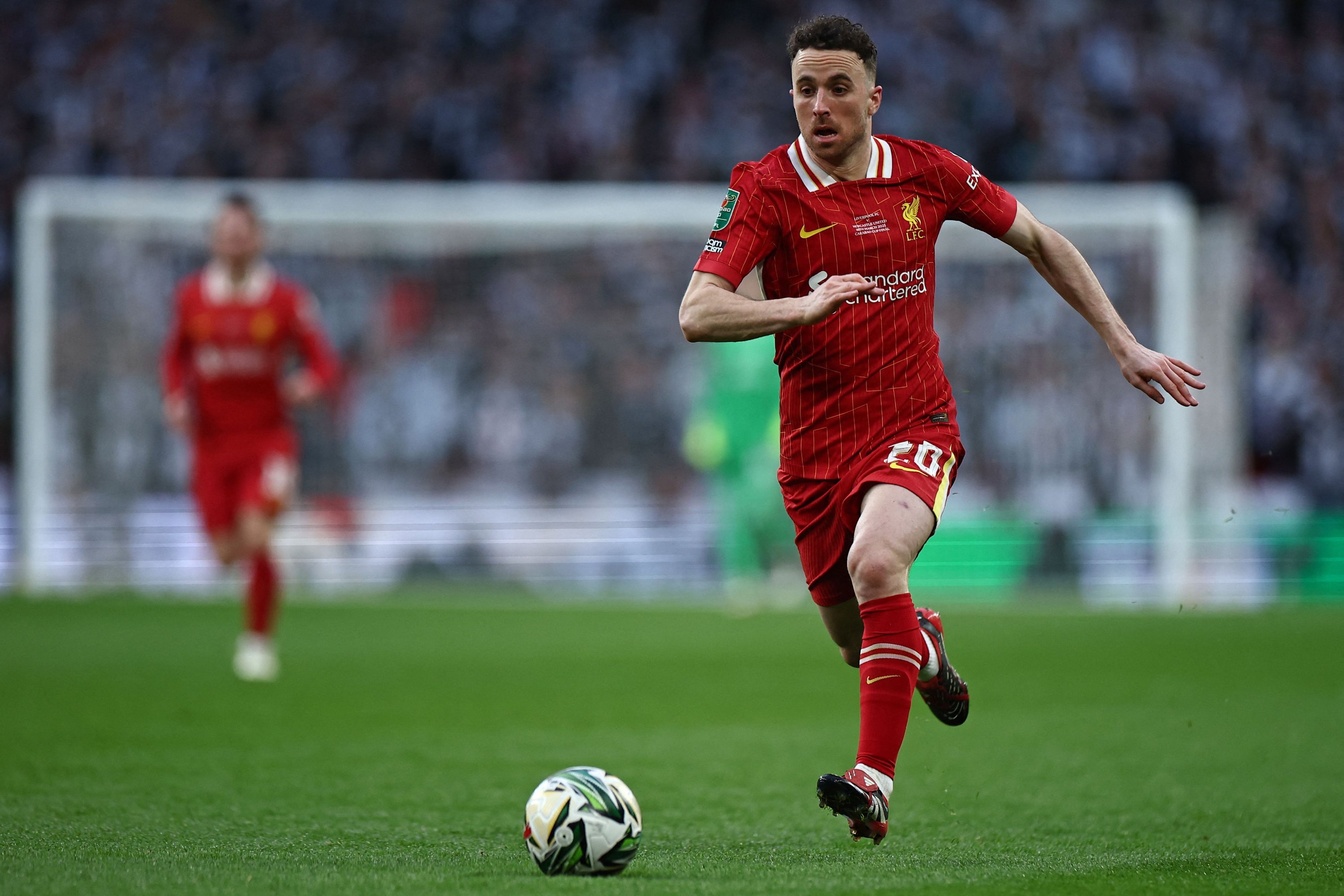
News of the accident sent shock waves across the global sporting community, immediately evoking memories of other players whose careers and lives ended far from the stadiums they once graced.
From Türkiye to South America, Europe to Africa, the road has too often proven to be the cruelest opponent footballers have faced.
Crownless King
In Türkiye, the tragedy of Diogo Jota echoes the loss of Metin Oktay, a legend of Galatasaray and Turkish football.
Oktay, nicknamed the Crownless King, died in September 1991 following a rollover crash near the exit of the Bosporus Bridge in Istanbul.
Rushed to the hospital, he succumbed to severe injuries, including a broken jaw, fractures in his left arm, and internal bleeding caused by a ruptured spleen. He was 51.
Dear Çalık
Another painful memory lies in the passing of Ahmet Çalık, who had once worn the colors of Galatasaray and Konyaspor.
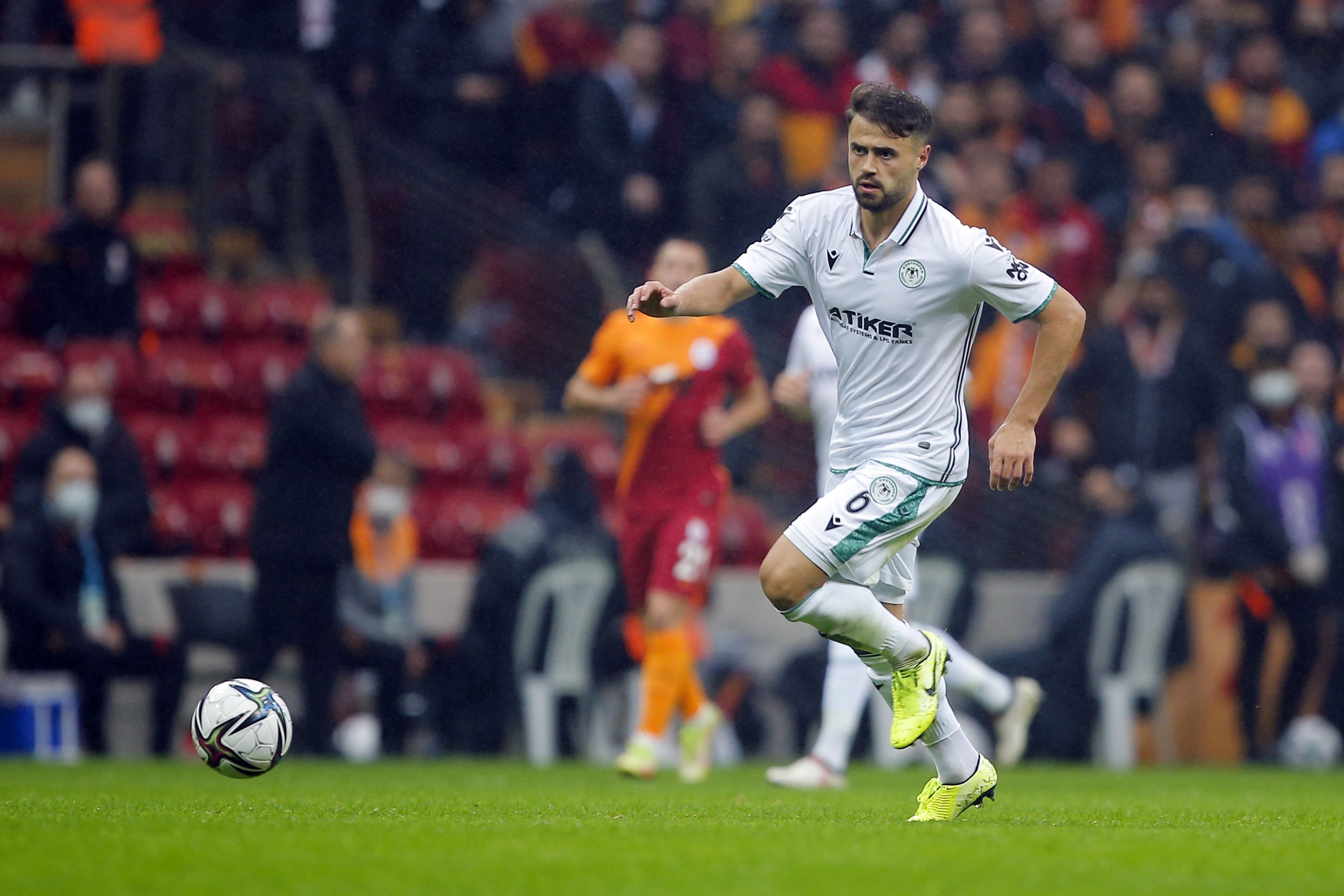
On Jan. 11, 2022, while returning to Ankara from Konya, Çalık lost control of his car on the Ankara-Niğde highway.
The vehicle veered off the road and flipped into a ditch near Gölbaşı, killing the 27-year-old defender instantly.
The news stunned Turkish football, robbing it of a promising player who had risen through the ranks at Gençlerbirliği.
Unlucky Sural
In April 2019, Alanyaspor’s Czech international Josef Sural was returning with teammates from an away match in Kayseri when their private minibus overturned.
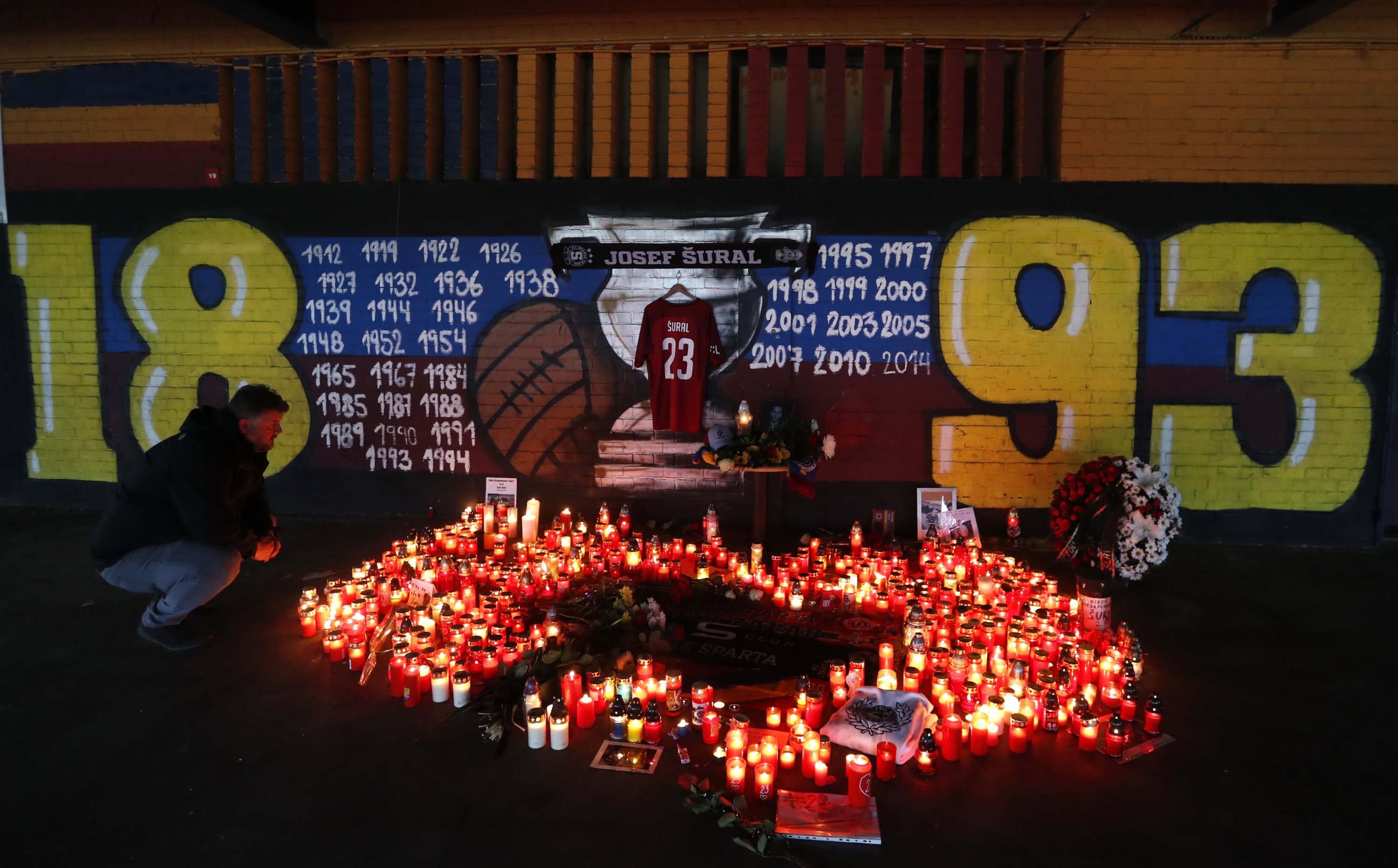
Of the seven players on board, only Sural failed to survive.
He was rushed to the hospital but died from his injuries at the age of 28, adding another name to the sport’s growing ledger of losses.
Few incidents shook Turkish football as deeply as the Samsunspor bus crash on Jan. 20, 1989.
En route to Malatya for a league fixture, the team’s bus collided with a truck near Havza.
The impact was fatal for five members of the traveling party – players Muzaffer Badalıoğlu, Mete Adanır, Zoran Tomic, coach Nuri Asan, and the driver Asım Özkan.
Several others, including players Emin Kar and Şanver Göymen, sustained serious injuries.
In the aftermath, Samsunspor honored the fallen by adding black to their red and white team colors.
The pain returned in 1994 when the club’s young star Müjdat Gürsu was killed in another car crash while on his way to pick up a friend from the airport. He was just 22.
Atlı cut short
Another Turkish tragedy occurred in December 2001 when Doğan Seyfi Atlı, a rising talent at Denizlispor, lost control of his vehicle while driving from Aydın to Denizli.
The crash near Nazilli left him critically injured.
He died shortly after in the hospital, aged only 21.
Far from Türkiye
These are just a few of the heartbreaking names from Türkiye.
The broader football world has suffered similarly devastating losses.
In Spain, the brilliant winger Jose Antonio Reyes, known for his time at Sevilla, Arsenal and Atletico Madrid, died in June 2019 in a high-speed crash near his hometown of Utrera. He was 35.
His death led to an outpouring of grief, especially from former teammates and fans who had watched his electrifying runs down the wing.
In Colombia, Freddy Rincon – a powerful midfielder who had played for Real Madrid and the national team – died in April 2022 after his car collided with a bus in the city of Cali.
The 55-year-old suffered severe head injuries and died two days later in hospital.
His death was a profound blow to a country that had long viewed him as one of its footballing pioneers.
Europe has also seen its share of road tragedies.
Gaetano Scirea, an Italian World Cup winner and Juventus legend, died in 1989 in Poland while on a scouting trip.
Diego Barisone, an Argentine center-back for Lanus, died in 2015 in a collision at just 26. Panama’s Rommel Fernandez lost his life in a crash in Spain in 1993, while England’s Laurie Cunningham, the first Black player to represent Real Madrid, died in a crash outside Madrid in 1989.
Petar Milosevski, a former goalkeeper who had stints with Trabzonspor and Malatyaspor, was killed in March 2014 when the car he was riding in collided with a minibus in North Macedonia.
He was 40.
The driver of the vehicle, North Macedonia Football Federation President Ilco Gyorgyioski, survived with injuries.
Other names add to this grim ledger: Brazil’s Everaldo and Heraldo Bezerra, Bulgaria’s Georgi Asparuhov, Spain’s Juan Gomez Gonzalez, Germany’s Lutz Eigendorf.
Each life lost left a silence in the stadiums they once lit up and a permanent scar on the heart of the game.
Sports
Turkish women power up in unprecedented weightlifting surge
Weightlifting in Türkiye is undergoing a quiet revolution – and women are leading the charge.
Once viewed as a male-dominated discipline, weightlifting has seen a steady rise in female participation, marking a shift that Turkish Weightlifting Federation President Talat Ünlü calls both historic and hopeful.
In a recent interview with Anadolu Agency (AA), Ünlü said that the number of active female lifters has surged from 900 to 1,200 over the past four years, while the men’s count hovers around 1,600.
The tipping point came in April, when, for the first time, Türkiye sent more women than men to the European Championships in Moldova.
“That was a proud moment for us,” Ünlü said. “It shows how far we’ve come.”
Weightlifting has long held a special place in Türkiye’s Olympic ambitions.
Alongside wrestling, it has delivered the nation’s richest haul of gold medals.
The likes of Naim Süleymanoğlu and Halil Mutlu became legends on the global stage. Nurcan Taylan, who in 2004 became Türkiye’s first female Olympic champion in weightlifting, and Taner Sağır, one of the youngest gold medalists in the sport’s history, further cemented its legacy.
Now, the next chapter may be written by a new generation of lifters – many of them women.
Ünlü says the Federation’s focus is now on youth development and long-term Olympic goals, especially with the Los Angeles 2028 Games on the horizon. Changes in weight classes and qualification quotas have prompted a renewed push to identify and prepare top-level athletes early.
“Our average number of registered lifters has grown from around 2,000 to 3,000,” Ünlü said. “At national championships, participation continues to rise. In some events, we’re seeing more women than men step onto the platform. That balance is critical for the sport’s future.”
Much of this progress is credited to physical education teachers, many of whom are former weightlifters themselves, who are now nurturing talent in schools across the country. Their role, Ünlü said, has been pivotal.
“If we have 400 kids competing in a championship today, a large share of them were trained or inspired by these teachers,” he noted. “They not only introduce the sport but serve as role models. The same goes for our increasing number of female coaches, who are helping younger women see what’s possible in this sport.”
Ünlü also emphasized that while weightlifting may appear from the outside as a brute show of strength, it is far more technical than it seems.
“If you know the technique, you can lift with grace and efficiency. It’s not just about force – it’s about precision,” he said. “And that’s why it’s such a great sport for women. It builds confidence, strength, and discipline.”
Turkish lifters continue to shine in international youth competitions. At U15 and junior levels, they regularly climb podiums at European Championships. The goal now, Ünlü said, is to carry that success into the senior level and ultimately, to the Olympic stage.
“We have very talented children,” he said. “The 2028 Olympics will be a turning point for Turkish weightlifting. We’re building for that moment.”
Sports
Wimbledon finds its rhythm as Alcaraz, Sabalenka cruise through
Carlos Alcaraz, Aryna Sabalenka and the end of London’s relentless heatwave brought a much-needed sense of normalcy back to Wimbledon’s grass courts Wednesday, although Jasmine Paolini’s surprising exit proved the drama was far from over.
After two punishing days of scorching temperatures saw top players such as Coco Gauff, Jessica Pegula, Alexander Zverev and Daniil Medvedev fall early, Alcaraz faced the pressure of avoiding a stunning upset as he took on British qualifier Oliver Tarvet.
The 22-year-old second seed wasn’t at his sharpest and survived a tense start – saving three break points in his opening service game against the world No. 733 – but eventually took control, cruising to a 6-1, 6-4, 6-4 victory and keeping his quest for a third consecutive Wimbledon title alive.
Earlier on Centre Court, women’s top seed Sabalenka battled to a 7-6 (4), 6-4 win against Czech Marie Bouzkova.
“Honestly, it is sad to see so many upsets in the tournament, in both draws, women’s and men’s,” said Sabalenka, who is bidding for her first Wimbledon title. “I’m just trying to focus on myself… I hope there are no more upsets in this tournament.”
That was not to be, as last year’s runner-up Paolini joined the mass exodus of favored players when she crashed out 4-6, 6-4, 6-4 against Russian Kamilla Rakhimova.
However, Australian Open champion Madison Keys, the sixth seed, safely advanced to round three by beating Olga Danilovic 6-4, 6-2, while unseeded four-time Grand Slam champion Naomi Osaka eased past Czech doubles specialist Katerina Siniakova 6-3, 6-2.
Lower temperatures did not necessarily mean more comfortable outings, as world No. 12 Frances Tiafoe became the 14th of 32 men’s seeds to fall, losing 4-6, 6-4, 6-3, 7-5 against Cameron Norrie, one of seven Britons in singles action on day three.
The American was joined later by Czech 23rd seed Jiri Lehecka, last month’s Queen’s Club Championships runner-up, who fell 7-6 (4), 6-1, 7-5 to Italian Mattia Bellucci.
Home charge
Ashlyn Krueger, the American 31st seed, was then beaten 7-6 (4), 6-4 by Russian Anastasia Pavlyuchenkova, ensuring 15 of the 32 women’s seeds also went out.
Sonay Kartal led the home charge by defeating Bulgaria’s Viktoriya Tomova 6-2, 6-2 to book her place in the last 32 for the second year in succession, while the nation’s big hope Emma Raducanu got past 2023 champion Marketa Vondrousova 6-3, 6-3.
There was disappointment for Britain’s Katie Boulter, who served 14 double faults as she crashed 6-7 (9), 6-2, 6-1 to 101st-ranked Solana Sierra, the Argentine who lost in qualifying but has seized her lucky loser spot with both hands.
Alcaraz, bidding to do the French Open-Wimbledon double for the second successive year, needed five sets to get past Italian veteran Fabio Fognini in the opening round and set up an intriguing clash with 21-year-old Tarvet.
Tarvet, who plays on the U.S. collegiate circuit for the University of San Diego, said he believed he could beat anyone, even Alcaraz, after winning his Grand Slam debut match against fellow qualifier Leandro Riedi of Switzerland on Monday.
He was clearly not overawed at sharing a court with a five-time major champion, and had he taken any of the eight break points he earned in the first set, it could have been closer.
Alcaraz proved a step too far, though, as he moved through the gears when required to keep an eager Tarvet under control.
Just as the Spaniard did in his first round when going to the aid of a female spectator suffering in the heat, Alcaraz again endeared himself to the Centre Court crowd.
“First of all, I have to give a big congratulations to Oliver. It’s his second match on the tour. I just loved his game, to be honest, the level he played,” Alcaraz said.
Play on courts without roofs was delayed for two hours by light morning rain, but once the clouds rolled away, the place to be for fans without showcourt tickets was Court 12 for Brazilian teenager João Fonseca’s match against American Jenson Brooksby.
The 18-year-old is widely tipped as a future challenger to the domination of Alcaraz and Jannik Sinner, and he showed why during a 6-2, 5-7, 6-2, 6-4 win that was celebrated by a large contingent of exuberant Brazilians.
Andrey Rublev, who suffered a bruising loss to Fonseca in the Australian Open first round earlier this year, battled past Lloyd Harris 6-7, 6-4, 7-6, 6-3 before Taylor Fritz closed out the day with a 3-6, 6-3, 7-6 (0), 4-6, 6-3 win over Gabriel Diallo.
-
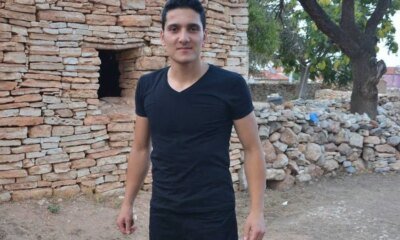
 Daily Agenda3 days ago
Daily Agenda3 days agoThe last word became ‘homeland first’
-
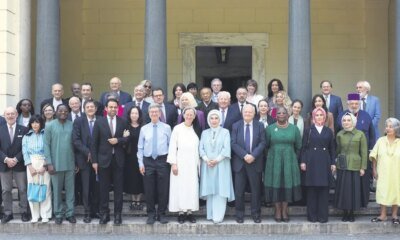
 Daily Agenda3 days ago
Daily Agenda3 days agoIn our belief, man is entrusted to man
-

 Daily Agenda3 days ago
Daily Agenda3 days agoRTÜK GAVE AN administrative Fine to Sözcü TV and Tele1
-
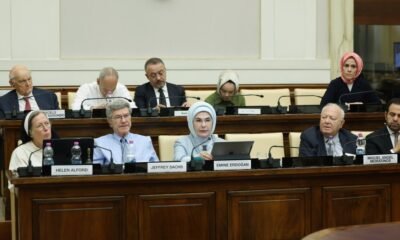
 Politics3 days ago
Politics3 days agoFirst lady Emine Erdoğan pushes for global justice in Vatican visit
-

 Politics2 days ago
Politics2 days agoTurkish envoy, Palestinian FM discuss student evacuations from Gaza
-

 Politics3 days ago
Politics3 days agoMore effort needed to boost, deepen Türkiye-China ties: Envoy
-

 Politics3 days ago
Politics3 days ago4 more detained in probe into Türkiye’s Izmir municipality
-
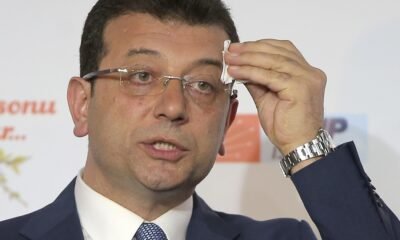
 Refugees1 day ago
Refugees1 day ago3 mayors arrested in southern Turkey as part of crackdown on opposition



